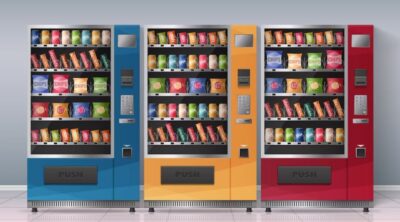Starting to organize your numbers from the first moment you receive income is extremely important to develop healthy financial habits that help you manage your finances in an orderly manner. That is why in this note we are going to share 3 tips that will allow you to plan your finances to make all your projects come true from now on. Let us begin!
Step 1: Create your first personal financial budget
The first step in organizing your finances is putting together a personal financial budget. But what is it? It is a system that allows you to plan how you are going to spend each peso that enters your economy before the money is available in your account.
And why is a budget so important? Because by planning and estimating your consumption, you avoid making unnecessary purchases. Besides, when you define a number for each of your expenses within the budget, at the end of the month you can evaluate if your planning was correct or should be adjusted. And that way you can learn to manage your funds better and better.
To start putting together a budget you must identify the following:
• Your income
How much money do you receive every month? If you have a job in a dependency relationship it is simple, it would be your monthly salary. But if you are independent, self-employed, or an entrepreneur, you should analyze how much money you received for your activity in the last 6 months to obtain an average of your income. That average will be the number that you will use to complete your income in your financial budget. If at any particular time, for example, during COVID 19 your income has variations, you must take it into account at this point.
• Your fixed expenses
These are those expenses that you must pay every month. They are essential expenses to maintain the lifestyle you choose. They do not usually have great variations from month to month and are expenses that you cannot stop paying. Example: rent, expenses, university, food, services, insurance, social work, among others.
• Your variable expenses
They are all those expenses of each month with an amount that can vary. Also, unlike fixed expenses, we are not required to pay them every month. They are expenses where we can control when and how much we spend. Examples: entertainment and outings, beauty, extras (ant expenses), gifts, hobbies, etc. Attention! If you need to reduce expenses, it is always easier to do so in variable expenses.
An important clarification: if you have credit cards and use them frequently, you should consider the total amount to be paid for your summary as a fixed expense. Since all that we spend with the card becomes a fixed expense for the following month.
In the Tools section, you will be able to download an excel file ready to complete! You no longer have excuses to start building your first personal financial budget!
Step 2: Record all your expenses
The record of daily expenses is a very important financial habit to be able to keep your finances in an orderly manner. When you put together a budget, you can probably easily identify fixed expenses, however, variable expenses are often a big question mark. With which, to know them in detail it is necessary to start recording all your expenses every day, without exception.
Something that works very well is to allocate a moment of the day to record expenses. You can, for example, write down the expenses of the previous day every morning. And another important point is to record absolutely everything, every expense, no matter how minimal, such as buying a gingerbread at the kiosk, a soda, or charging your public transport card.
For your expense record to be efficient and then you can analyze the information, we recommend doing it through an application or an excel on your cell phone. We do not recommend writing down the consumption in an agenda or the notes of the cell phone because then it takes a long time to transfer them to an excel file to be able to effectively control how much we spend.
Economy Tip:
To keep your finances in order, knowing how to use Excel is key. It is a program that is used to make calculations simply and quickly. If you do not know it, we recommend that you investigate how to learn and that you are encouraged to start using it. The sooner you start; the more tools you will have to manage your finances!
Step 3: develop healthy financial habits
To maintain order in your economy, it is necessary to generate information about your numbers and develop habits that help you make good financial decisions at all times, especially in difficult or highly uncertain contexts.
The first habit to develop is recording daily expenses as we talked about in point 2.
Then the next key habit is to review your budget and check it against your expenses week by week. That way you can anticipate certain financial situations and make decisions that allow you to spend wisely.
For example, if in your budget you thought you were going to spend $ 10,000 on food and by week 2 of the month you have already spent $ 8,000, you can see that for the remainder of the month you should only spend $ 2000. Otherwise, you would end up using the cards and generating debt for the next month.
And the last healthy financial habit is to review your budget at the end of each month, to understand whether or not it meets your planning, and to be able to organize the following month before the money enters your account. If you start applying these 3 tips to order your finances (Economics Tuition) you will see that in a very short time you will have excellent results in managing your money and surely you will start saving to make all your goals come true!









